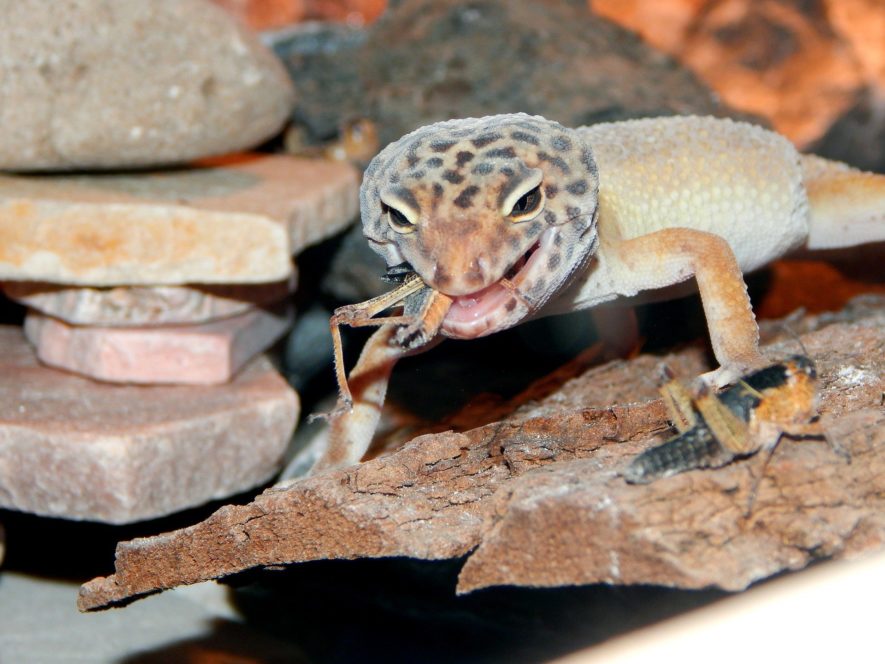For young geckos shedding occurs more frequently once a week but when they are fully grown they shed once every one to two months.
Are red heat lamps bad for leopard geckos.
Also you can look into heat tape as well as it s confirmed to work just as well as a heating pad.
This is what you need to replicate in your leopard gecko s vivarium.
Here is a quick overview of a 5 element setup for any leo tank.
Sometimes when you get the heat mat you don t even need a light.
Leopard geckos shed at about two to four week intervals.
And also you should put the thermometer on the substrate so you can measure the temperature where your gecko.
Unless you want to see him at night.
Red blue or black night light which should be for a couple of hours while you want to watch your geckos optional.
I sincerely doubt any leopard geckos you put in the tank will care which side you put the heat pad on.
Because leopard geckos are hiding from the bright light you don t need any special uvb lighting in the vivarium.
I might work but considering that leopard geckos take in heat from a their bellies they might have trouble digesting.
Ceramic bulb for nighttime heating or a heating pad if your tank is too small.
While leopard geckos might benefit from a very low uvb lamp 2 5 many owners keep their leopard geckos without uvb lighting.
Furthermore leopard geckos being crepuscular are also able to perceive into the ultra violet spectrum and thus are disturbed by red light.
A heat light might work but i would go for a heat mat.
As leopard geckos can actually observe the wavelengths of red light your leo will be led to think that it is indeed daytime and this in turn will have an effect on their sleep wake cycles.
The presence of moisture aids in the shedding.
Make sure you re sure though once you stick it on because once it s on the tank it s not going to be removed nor should it be removed.
Incandescent heat lamp as daylight.










